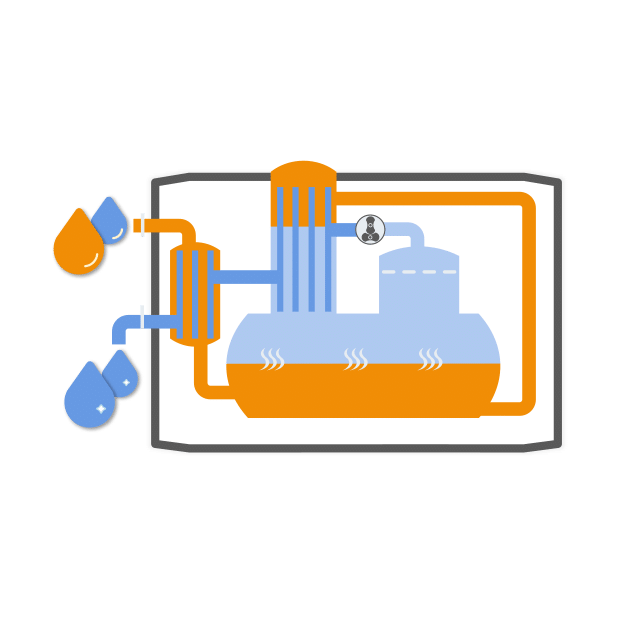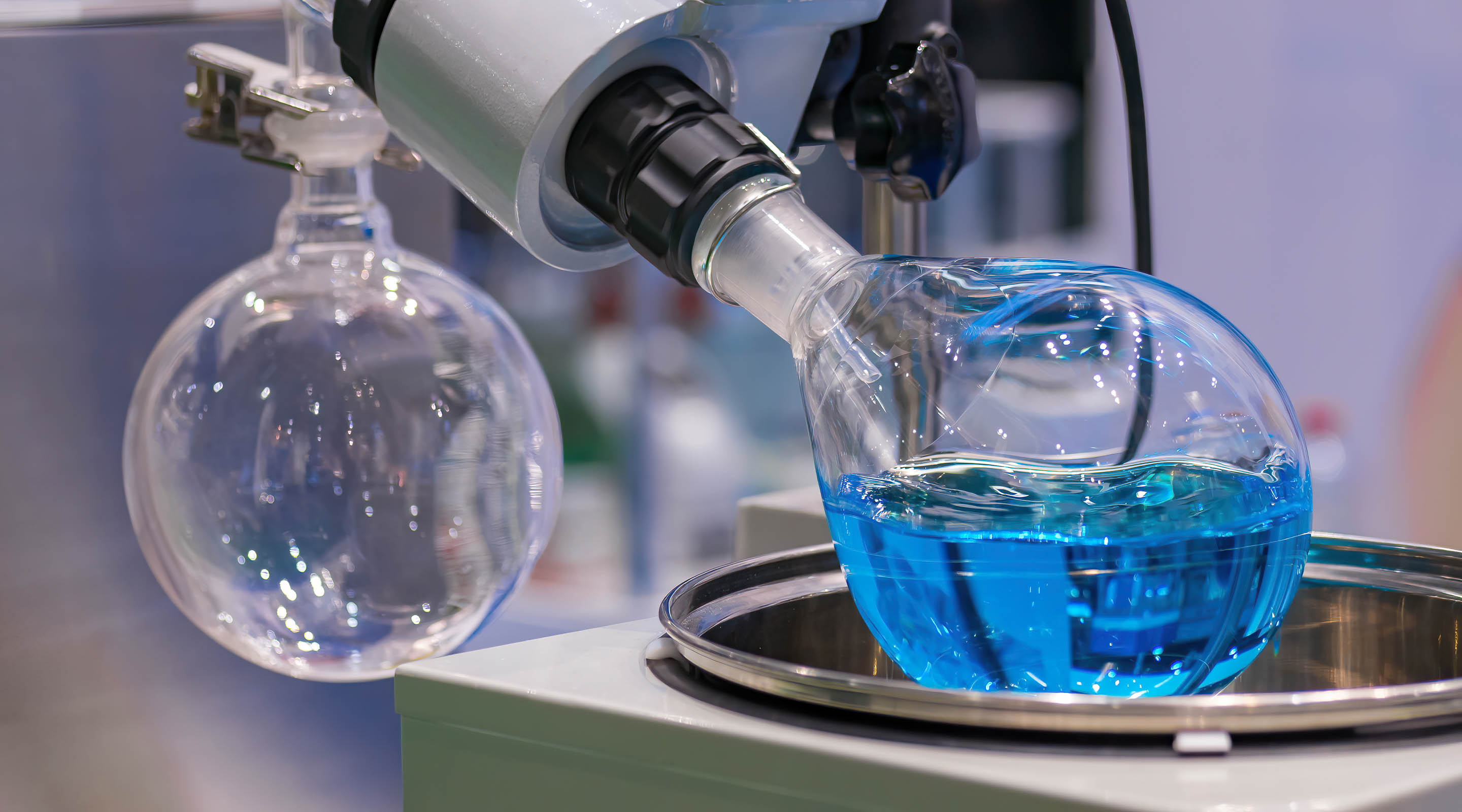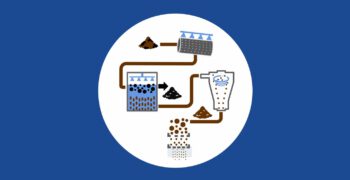
Evaporation is a thermal process. It can be used if the wastewater constituents to be separated do not evaporate and only the clean water escapes as vapour, which then condenses again as clean distillate. Wastewater constituents that are highly flammable or can form a flammable or explosive air mixture, are not suitable for evaporation.
Products for this application
When is an evaporator used in industrial wastewater treatment?
- in the presence of very strongly complexed heavy metals, e.g. in the presence of EDTA
- for non-volatile AOX (adsorbable organic halides), e.g. wastewater from PVC production and PVC processing
- for water-soluble, non-volatile organic substances, such as selected pharmaceutical wastewater or wastewater from chemical industries
- in the recovery of valuable raw materials, such as gold and platinum metals from rinse water from catalytic processes and electroplating wastewater
- for synthetic, non-breakable emulsions, if the ingredients are not water-vapour volatile





